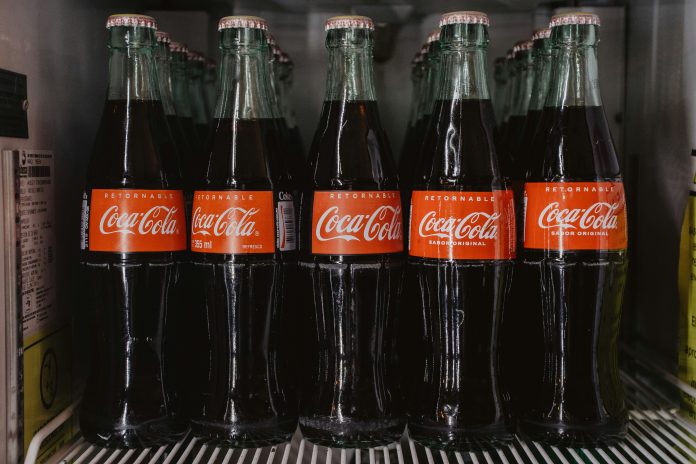On December 2nd, The Coca-Cola Company unveiled what it described as an “evolution” in its environmental goals. However, this move represents a significant regression, as the leading plastics polluter has quietly abandoned its 2022 commitment to achieve 25% reusable packaging by 2030. Instead, Coca-Cola is doubling down on ineffective recycling targets that fail to meaningfully address the escalating plastic crisis.
The original 2022 pledge, once accessible on Coca-Cola’s World Without Waste webpage and archived versions, has been removed. Visitors to these pages now encounter a “404 error” message. The deletion, which appears to have occurred after November 20, 2024—just before the fifth round of Plastics Treaty negotiations—erases any reference to the reusable packaging commitment. Coca-Cola’s latest announcement omits any mention of this pledge, as if it never existed.
“Coca-Cola’s pledge lasted less time than one of their reusable bottles might expect to be in circulation,” said Sam Pearse, Campaign Director of The Story of Stuff Project. “The fact that the company’s share of reusable packaging only dropped down further after the 25% reuse pledge reflects a serious lack of intent.”
A peer-reviewed study published by Science Advances, based on BFFP Brand Audit data, reveals a 1:1 relationship between the amount of plastic a company uses and the amount found in the environment. This strong correlation between consumer goods companies’ plastic production and pollution across geographies and widely varying waste management systems suggests that reducing the use of plastic in the fast-moving consumer goods sector is a viable solution to curb global plastic pollution.
“Coca-Cola’s decision to abandon its reusable packaging goals is not just greenwashing—it’s a betrayal of the communities in Asia that are already bearing the brunt of plastic pollution. As one of the region’s top plastic polluters, Coca-Cola continues to flood our lands and waterways with waste that harms the most vulnerable, said Prigi Arisandi Founder of Ecoton. “To secure a future free from the harms of plastic pollution, we must dramatically reduce plastic production, and reuse systems are a critical, effective solution in this fight.”
“Coca Cola has consistently ranked among the top polluting brands in BFFP brand audits conducted across Latin America. Coke continues to rely on single-used products primarily derived from petroleum, all while repeatedly promoting its ‘sustainable packaging,’” said María José García, Executive Director of Fundación el Arbol Chile. “By abandoning its commitment to reusable packaging, Coca-Cola exacerbates the injustice faced by communities already suffereing from the impacts of plastic pollution.”
Coca-Cola’s decision to walk away from its reusable goals underscores the need for mandatory regulations that hold companies accountable for the pollution they cause. As world leaders extend Plastics Treaty negotiations into 2025, delegations must continue to support a high-ambition legally binding treaty that includes provisions on corporate accountability, prioritizing plastic production reduction measures, and scaling reuse and refill systems.
“Coke’s latest move is a masterclass in greenwashing, ditching previously announced reuse targets, and choosing to flood the planet with more plastic they can’t even collect and recycle effectively. This only reinforces the company’s reputation as the World’s Top Plastic polluter,” said Von Hernandez, Global Coordinator of Break Free from Plastic. “If they can’t even keep their low-bar commitments, how can they claim to be serious about addressing the global plastic crisis?”

